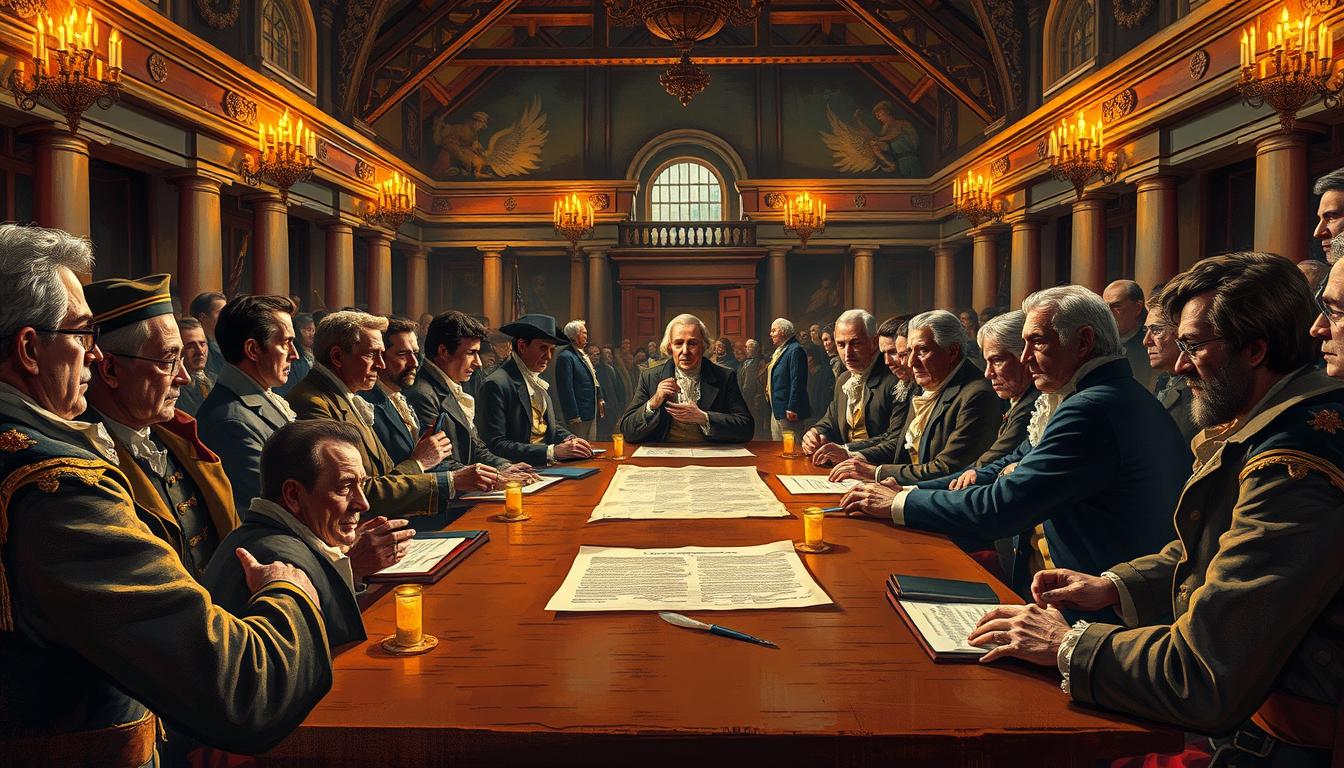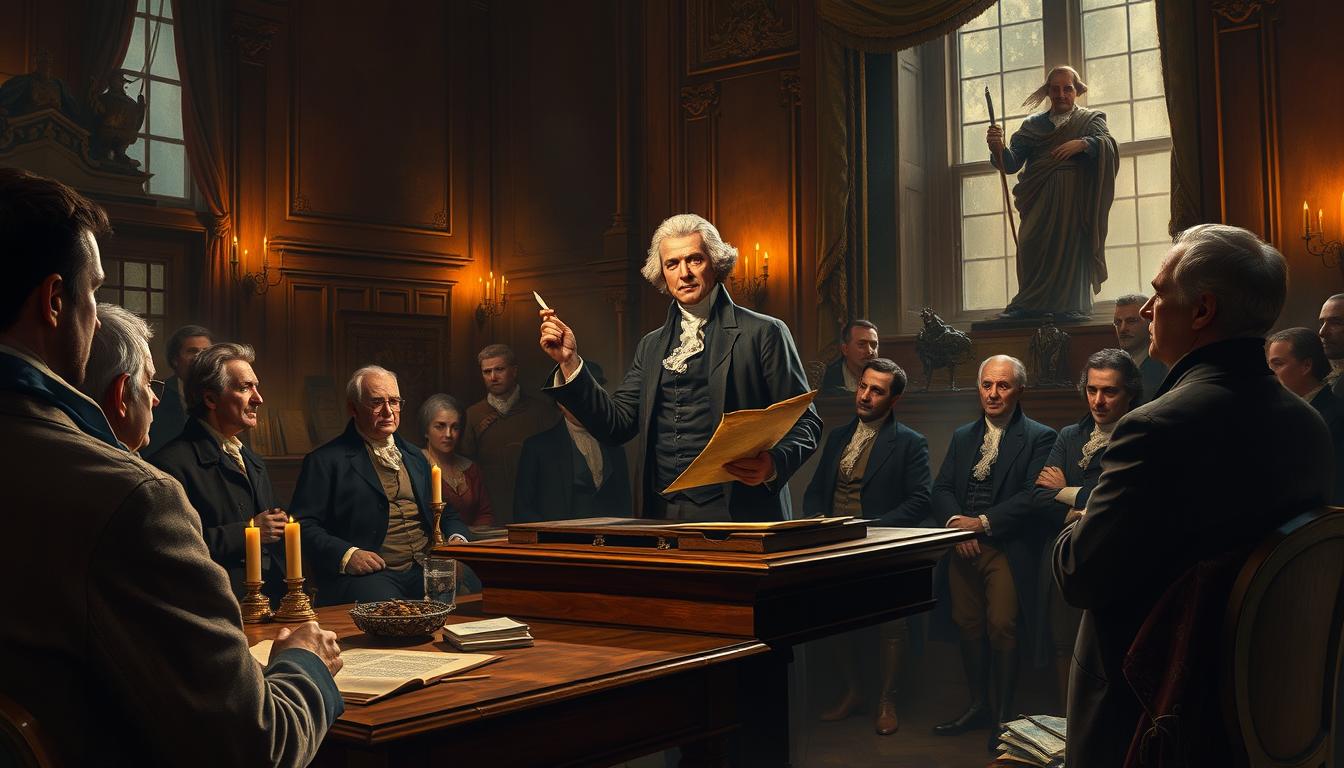The Declaration of Independence: The Revolutionary Words That Shaped a Nation

The Declaration of Independence stands as one of the most significant documents in American history. Officially adopted in 1776, it marked the colonies' formal break from British rule, echoing the revolutionary ideas that fueled the American Revolution. This monumental text not only declared independence but also articulated the philosophical foundations of a new nation, emphasizing the principles of liberty and equality.
Understanding the motives behind this declaration and its historical context is crucial to grasp how it laid the groundwork for modern democracy and civil rights in the United States. Through its powerful language, the Declaration of Independence continues to inspire generations, solidifying its place among the revered founding documents of the nation.
Historical Context of the Declaration
The backdrop of the Declaration of Independence reflects a complex interplay of events and ideas that shaped the sentiments of the American colonies. As tensions mounted in colonial America during the 1760s and 1770s, colonists began to voice their discontent against British tyranny. This period saw the implementation of numerous acts that directly impacted daily life, provoking thoughts of revolt and independence.
Colonial America and Growing Tensions
The relationship between Britain and its American colonies fractured over issues of taxation and representation. Fundamental acts such as the Stamp Act and the Townshend Acts sowed seeds of revolutionary tensions within the colonies. Citizens felt unfairly taxed without having a voice in their governance. Resistance movements began to emerge, signifying a growing willingness to oppose British authority and assert colonial rights.
The Influence of Enlightenment Ideas
Simultaneously, the Enlightenment ideas significantly influenced the intellectual climate of colonial America. Prominent thinkers like John Locke championed concepts of natural rights and the social contract, arguing that governments derive their power from the consent of the governed. These revolutionary concepts encouraged the colonists to challenge British tyranny and evolve toward the conception of independence, serving as the ideological foundation for the Declaration.

Key Figures Behind the Declaration
The drafting and signing of the Declaration of Independence involved a group of extraordinary individuals whose contributions shaped the course of American history. Thomas Jefferson emerged as the principal author, embodying the Enlightenment ideals that influenced not only the Declaration but also the foundational principles of the nation.
Thomas Jefferson: The Principle Author
Thomas Jefferson's role as the primary author is often celebrated for his articulate expression of the unalienable rights of life, liberty, and the pursuit of happiness. His vision was rooted in Enlightenment thinking, championing the belief that government should serve the people and protect individual rights. Jefferson's words captured the spirit of the time, resonating with the aspirations of the American colonies.
Other Notable Signers and Their Contributions
Other signers of the Declaration played vital roles, each contributing unique perspectives and expertise. John Adams advocated for independence fervently and was instrumental in garnering support among the delegates. Benjamin Franklin utilized his diplomatic skills to secure essential backing for the revolutionary efforts. John Hancock, known for his bold signature, served as a symbol of defiance against British rule. The contributions of these Founding Fathers enriched the document and its reception.
The Role of Continental Congress
The Continental Congress served as the backbone of the American Revolution, providing a forum for discussion and decision-making. The Congress debated the merits of declaring independence, ultimately uniting the colonies towards a common purpose. On July 4, 1776, they officially adopted the Declaration, marking a turning point in history and signaling the colonies’ intent to break free from British authority.

| Key Figures | Contributions |
|---|---|
| Thomas Jefferson | Principal author, articulated Enlightenment principles. |
| John Adams | Advocated for independence and rallied support. |
| Benjamin Franklin | Secured diplomatic support for the revolutionary cause. |
| John Hancock | Symbol of defiance, known for his notable signature. |
The Declaration of Independence: The Revolutionary Words That Shaped a Nation
The Declaration of Independence serves as a historic document that encapsulates the core philosophies underpinning the desire for self-governance in the American colonies. Through its pivotal passages, it articulates assertions of freedom and equality that remain relevant today. This section delves into these significant excerpts, providing insight into their meanings and implications.
Analysis of Its Pivotal Passages
Among the Declaration's most pivotal passages, the preamble stands out as a declaration of human rights. It famously states that all men are created equal and are endowed with certain unalienable rights, including Life, Liberty, and the pursuit of Happiness. These lines have become synonymous with the principles of American democracy, expressing a fundamental demand for freedom and dignity.
Expressions of Freedom and Equality
This historic document not only outlines grievances against the British crown but also emphasizes the revolutionary notion that equality is a birthright. The Declaration's assertions resonate through time, inspiring countless movements advocating for civil rights and social justice. The emphasis on the right to self-governance and the acknowledgment of inherent human rights highlight a commitment to equality that extends beyond the 18th century.

| Pivotal Passage | Interpretation | Impact on Society |
|---|---|---|
| "All men are created equal" | Affirms intrinsic human rights | Foundation for civil rights movements |
| "Life, Liberty, and the pursuit of Happiness" | Defines essential freedoms | Guiding principle for American democracy |
| "Governments are instituted among Men" | Justifies the right to rebellion | Encourages self-governance initiatives |
| "It is the Right of the People to alter or to abolish it" | Promotes active citizenship | Inspires calls for reform |
| "Prudence, indeed, will dictate that Governments long established" | Stresses the importance of thoughtful governance | Influences political philosophy worldwide |
The Impact of the Declaration on American Society
The signing of the Declaration of Independence marked a pivotal moment for American society, generating immediate reactions that varied widely across different regions and communities. This revolutionary document not only asserted the colonies' need for autonomy but also kindled a fervor for independence support among many citizens. The newfound ambition for liberty began reshaping public sentiment in profound ways.
Immediate Reactions and Support for Independence
The Declaration encountered an array of responses, often polarized based on allegiances to Britain or the growing revolutionary spirit. In various gatherings, passionate speeches reverberated through towns as colonists rallied behind the call for independence. This period saw the formation of groups determined to support the break from British rule, establishing a foundation for democratic engagement in American society.
- Rise in revolutionary groups advocating for independence
- Public demonstrations showcasing newfound patriotism
- Mixed reactions sparking debates about loyalty and freedom
Long-Term Effects on American Ideals
Over time, the Declaration of Independence evolved into a cornerstone of American values. Its influence permeated various aspects of life, inspiring movements focusing on equality and fundamental rights. Generations continued to invoke its principles during pivotal historical moments, solidifying its place within American culture and identity.
Critical to the cultural impacts of the Declaration is its role in shaping attitudes towards liberty. Americans increasingly adopted the ideals expressed in the document, embedding them deeply into the fabric of their society. The enduring legacy of independence support remains a guiding force in contemporary dialogues surrounding freedom and justice.
International Repercussions of the Declaration
The Declaration of Independence played a pivotal role in shaping international relations, extending its influence far beyond the borders of the United States. Its impact resonates in various revolutionary movements and political transformations globally. Numerous nations have drawn inspiration from the principles of freedom and equality articulated in this historic document.
Influence on Other Nations’ Movements
The revolutionary movements that followed the Declaration illustrate its worldwide impact. In France, the Enlightenment principles echoed through the streets during the French Revolution, enabling citizens to challenge oppressive regimes. Similarly, in Latin America, figures like Simón Bolívar championed the cause of independence, embracing the ideas of self-determination and democracy derived from America’s founding document. This widespread adoption exemplifies the declaration's significant contribution to a wave of global democracy.
The Declaration as a Symbol of Democracy
Across continents, the Declaration symbolizes the enduring quest for democratic governance. It remains a potent emblem for countless nations striving to establish systems that reflect the will of the people. The Declaration's principles have been invoked repeatedly in discussions about human rights and justice in international relations, solidifying its status as a beacon for those pursuing equality and sovereignty.
Legacy of the Declaration in Modern Times
The enduring legacy of the Declaration of Independence continues to shape American identity and influence global democracy. Its fundamental principles, including the commitment to equality and the right to self-governance, serve as a guiding framework for contemporary relevance in civic life. As discussions surrounding constitutional rights intensify, the Declaration reminds us of the responsibilities we hold in safeguarding these freedoms.
Throughout history, the ideas articulated within the Declaration have inspired the drafting of several constitutions around the world, illustrating its profound impact on the notion of democracy. From the universal declaration of human rights to various movements advocating for social justice, the Declaration remains a powerful symbol in the discourse of human rights advocacy, demonstrating the ongoing struggle for equality and freedom across nations.
In today’s society, the legacy of the Declaration is more crucial than ever. Citizens are reminded that the fight for justice and representation is ongoing, drawing strength from the revolutionary words crafted by its authors. By engaging with these ideals, individuals not only honor American history but also contribute to the evolving narrative of global democracy, ensuring that the principles rooted in the Declaration continue to resonate for future generations.
